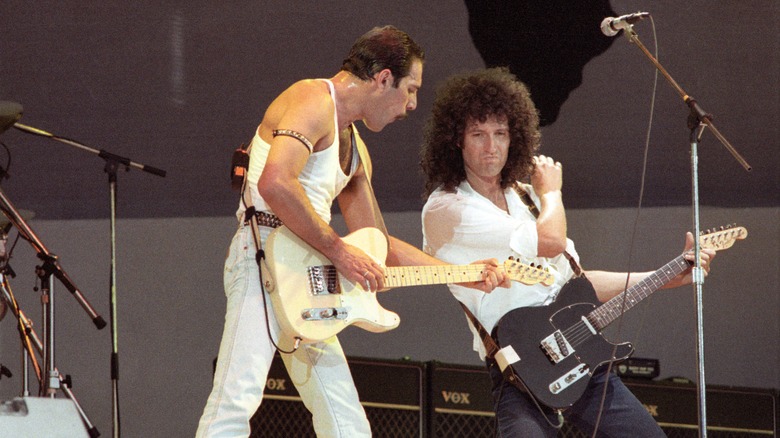After 40 Years, MTV Is Finally Taking Its Music Channels Off-The-Air Internationally - Here's Why
In a move that has millennials distraught, MTV is shutting down its international broadcasts at the end of 2025, reflecting broader changes in the music and television industries. MTV is cutting music streaming channels like MTV Music, MTV 80s, MTV 90s, Club MTV, and MTV Live, as a result of a changing ownership structure. Paramount Global, MTV's parent company, merged with media rival Skydance Media in an $8 billion mega-deal in August 2025. The move sees Skydance Media owner David Ellison, son of Oracle-founder-made-TikTok-owner Larry Ellison, become one of the most influential figures in the country, taking over some of the country's largest media brands. Upon completing the deal, the conglomerate began a shakeup of its media holdings, including nixing its beloved international music broadcasts.
Launched in 1981, MTV has been a paragon of popular entertainment for nearly half a century, broadcasting culture-defining moments like Michael Jackson's "Thriller" and the Live Aid concert series. The company's international reach has been a staple of its business platform since its European and United Kingdom broadcasts launched in 1987 and 1997, respectively. For some, losing MTV's music videos is symbolic of broader socio-cultural shifts, in which the increasing consolidation of media providers coalesces with streaming and social media's democratization of content, creating a paradox of choice in which there are more mainstream entertainment options than ever, and yet fewer entertainment providers available. While younger fans may find millennials' existential nostalgia overwrought, the details behind the axing of the beloved music video station are endemic of a changing media landscape that may strip fans of more than the serendipity of watching a Nirvana concert on their television sets.
Streaming killed the video star
Ironically, MTV's protracted move away from music videos comes despite the medium's continued success. However, viewership has migrated away from broadcast television, gaining a new life on video streaming platforms. As it stands, YouTube is now the most-watched content provider on American televisions, beating broadcasters like Fox and Disney and streamers like Netflix. MTV's international streaming channels pale in comparison. Ratings showed MTV Music and MTV 90s garnering only a combined 2.25 million views in July 2025, less than the daily totals for some of 2025's most popular music videos, like Taylor Swift's "The Fate of Ophelia" and Daddy Yankee's "El Toque".
Making a one-for-one comparison is difficult for a short-form medium like music videos. However, what is clear is that while the music video has staying power as an art form, the industry's business model has changed, necessitating that MTV remake itself. In September 2025, The Wall Street Journal reported how Paramount Skydance CEO David Ellison sought to revitalize the MTV brand in the wake of this changing landscape. One challenge for the conglomerate is reinventing the network while maintaining or lowering costs, a move that will likely involve moving resources towards its digital footprint. A key consideration is reorienting towards younger audiences. Reportedly, MTV's median viewer is 56, further underscoring its struggles to maintain relevance in a modern media landscape.
A new era
MTV is part of a broader reshuffling aimed at revitalizing iconic brands like Comedy Central, VH1, Nickelodeon, and Showtime, while cutting costs by a reported $2 billion. According to President Jeff Shell, although the declining viewership of linear channels poses significant challenges, the company views them as "brands we have to redefine" rather than "declining" assets. While a clear part of this strategy is to shift investment towards streaming platforms like Paramount+, it will also likely include reworking the content of Paramount Skydance's various channels. Recent moves, such as the $7 billion deal with the UFC or luring the creators of "Stranger Things" from Netflix, suggest that Paramount Skydance may be shifting spending rather than reducing it. However, these questions are complicated by budget-slashing moves like the shuttering of Paramount Television Studios or the layoff of 2,000 employees in late October 2025.
The impact of the Paramount Skydance merger is larger than the cancellation of a defunct music video broadcast. For many, it indicates a news, entertainment, and social media sphere increasingly controlled by large conglomerates. Paramount Skydance's potential purchase of Warner Bros. Discovery exacerbates these concerns, as the Ellisons would control streamers Paramount+, HBO Max, and Discovery+, cable networks CNN, CBS, TNT, and TBS, movie studios Paramount and Warner Bros, and social media giant TikTok. Bloomberg reported that Warner Bros. Discovery rejected the initial offer, but the possibility of expanding the media empire has some looking at MTV as a precursor of things to come. How these changes interplay with trends like the introduction of AI or the consolidation of news outlets could have an untold effect on the global media environment.


